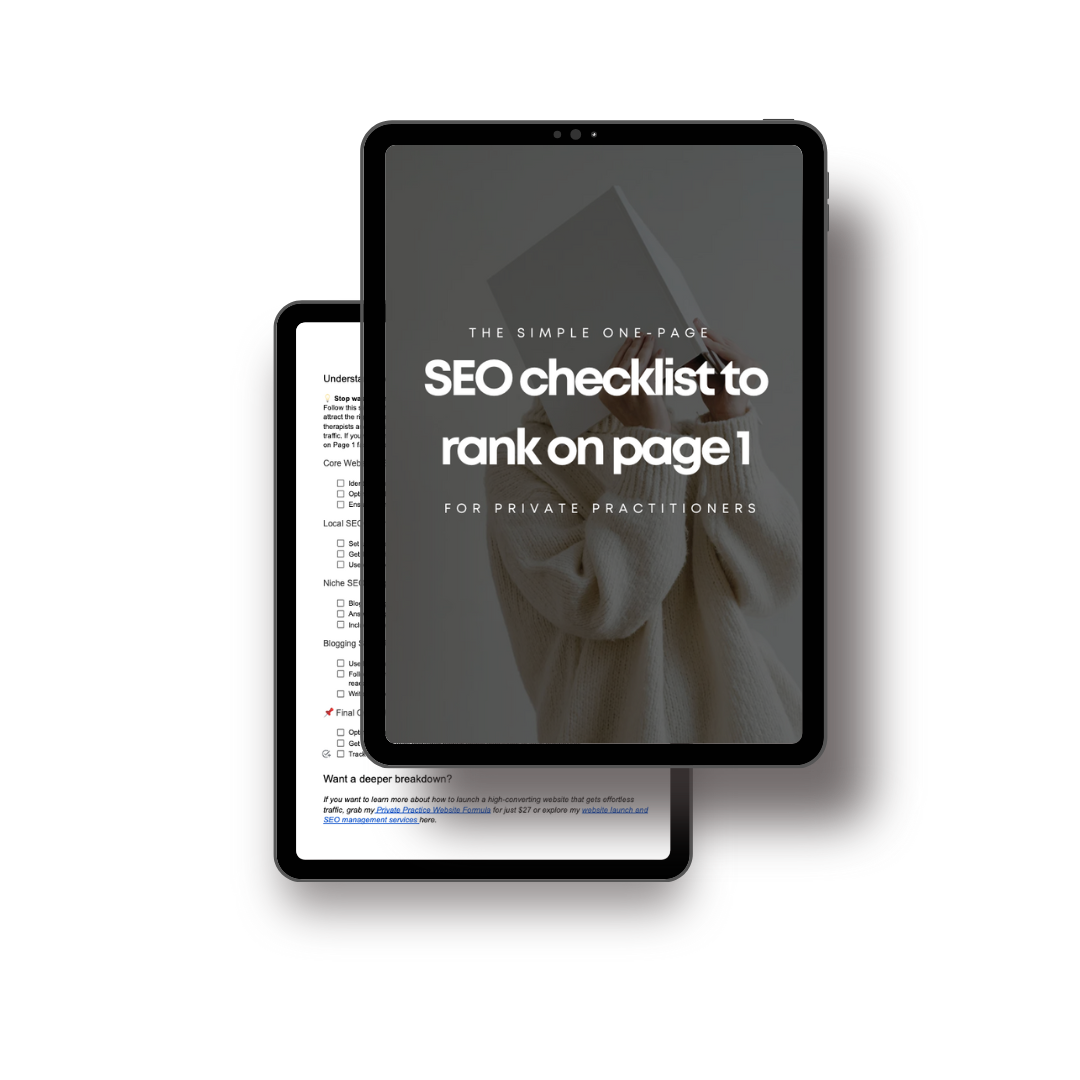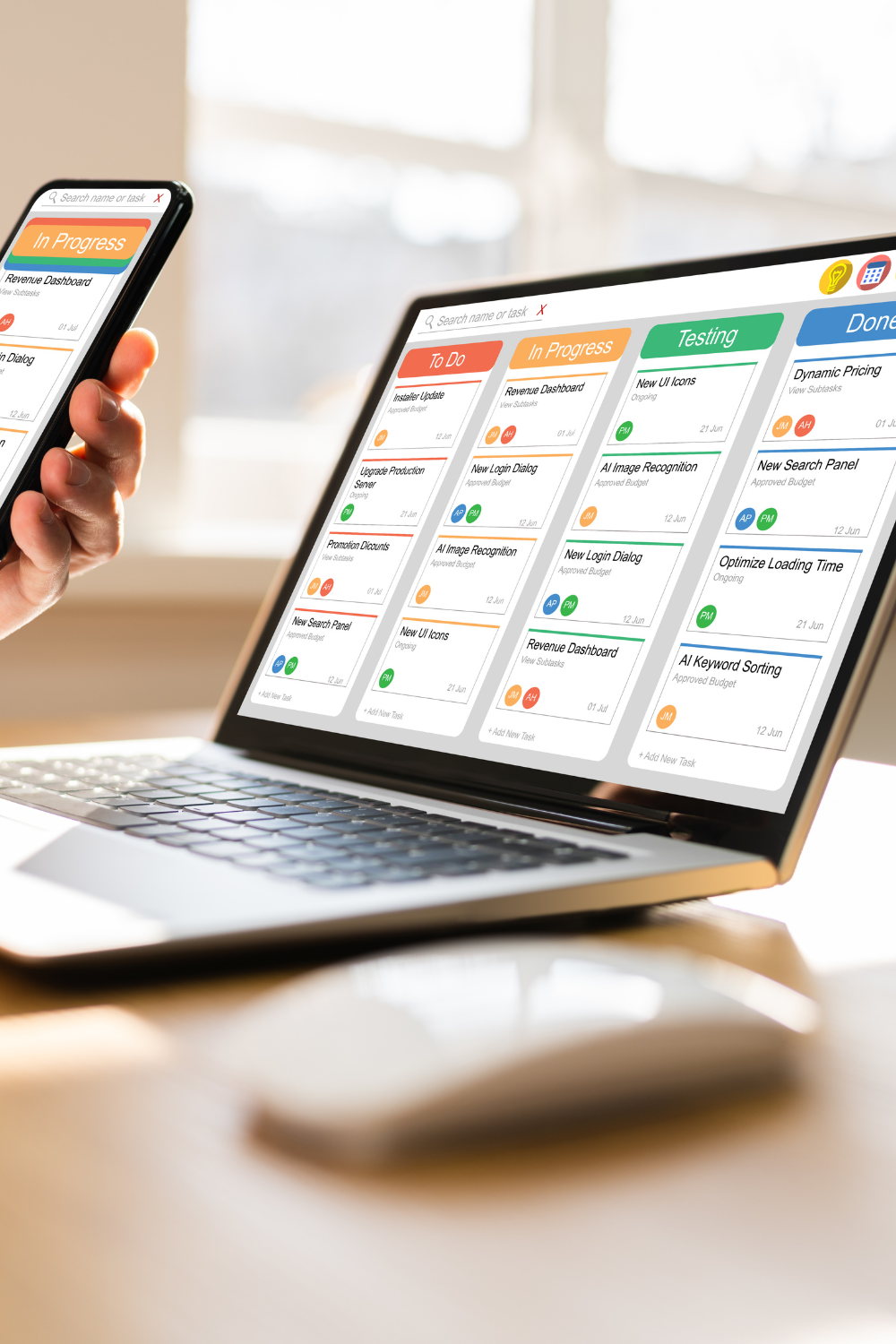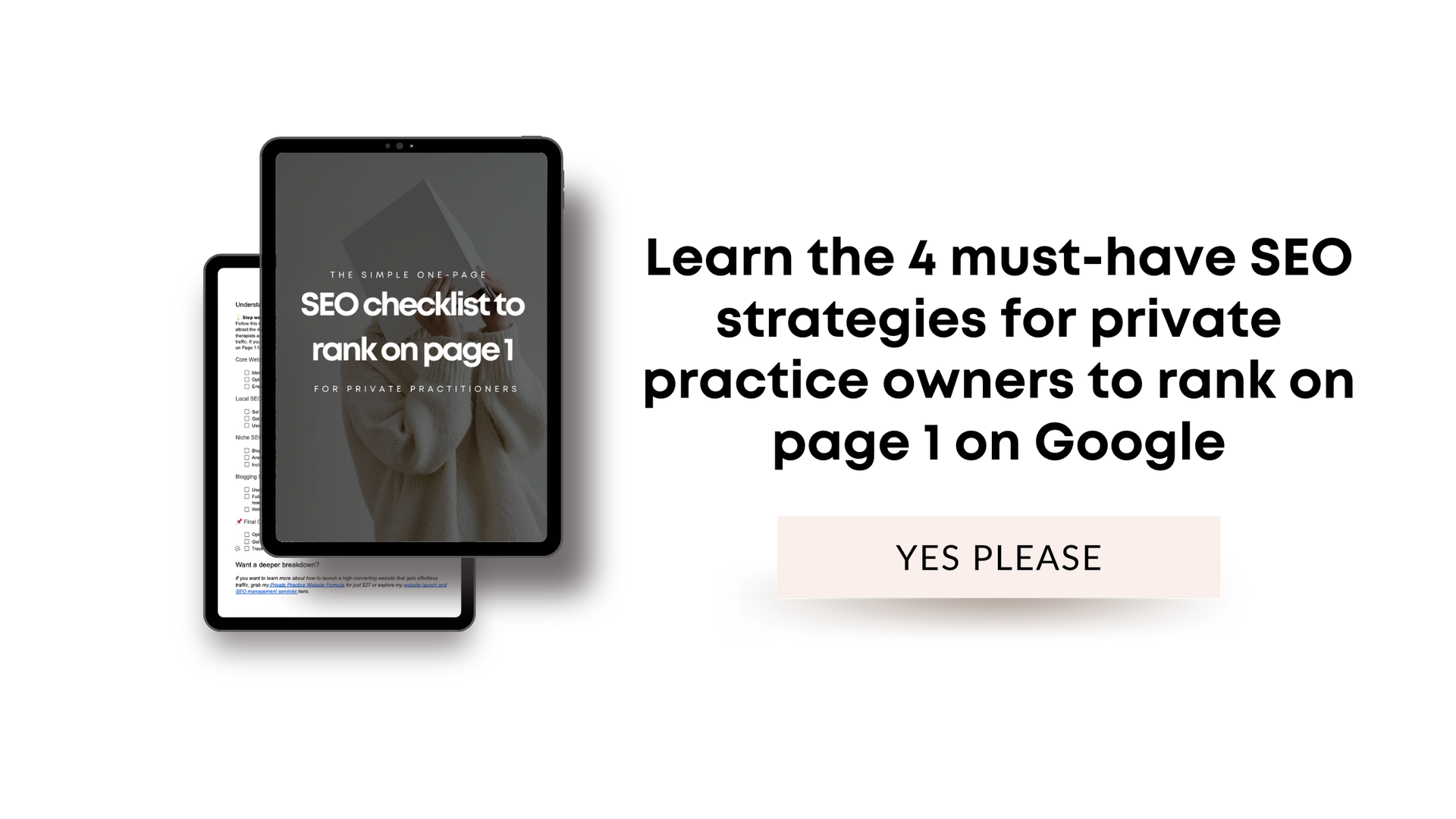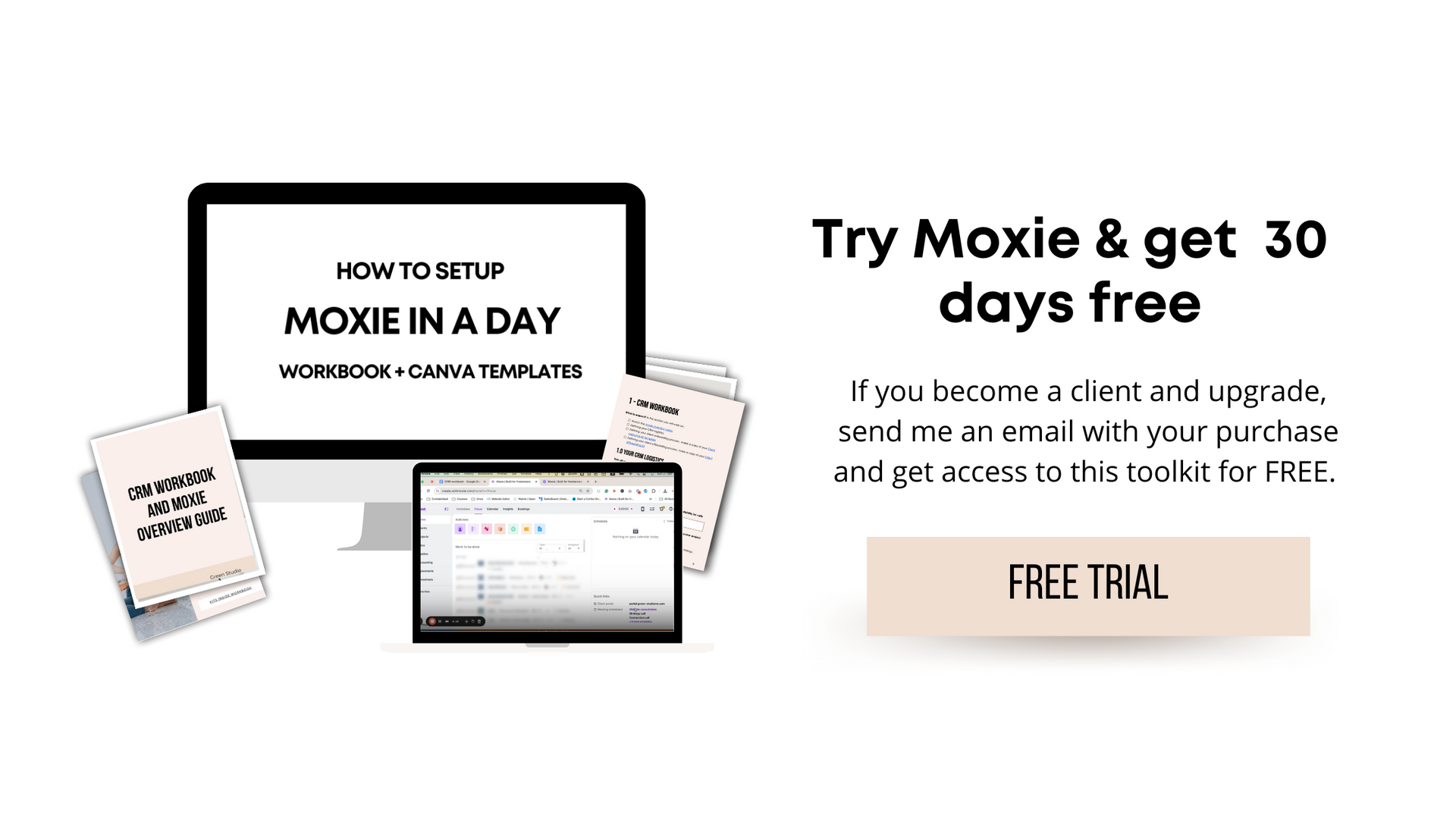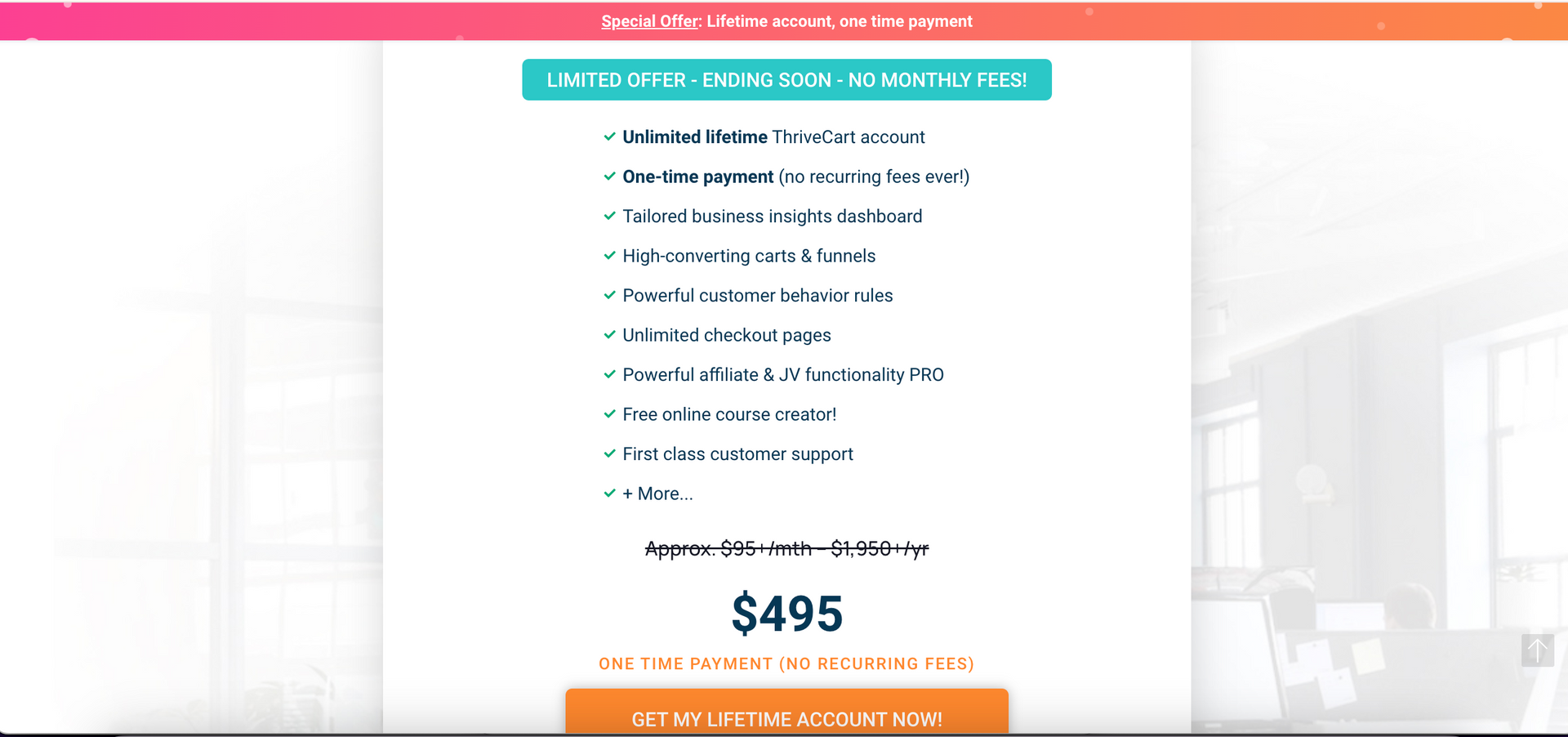The best online coaching platforms in 2025
If you’re a life coach, you know that choosing the right online coaching platform can be the difference between a thriving practice and one that feels like it's constantly playing catch-up. The digital world is evolving, and with so many options out there, it’s easy to feel overwhelmed. “Which platform is right for me?” “How can I keep everything organized and still connect meaningfully with my clients?” Sound familiar? You’re not alone.
In case we haven’t met, I’m Natalia Maganda, a web designer for life coaches . I help conscious service providers build strategic and engaging websites that convert visitors into clients and make their online presence work like magic. If you’re ready to find your perfect platform, you’re in the right place. Let’s break down the best options and how they can transform your coaching business.
Why does the platform you choose matter?
Before we dive into the best options, let’s talk about why this decision is crucial. Your online coaching platform isn’t just a tool; it’s the central hub for your entire business. It’s where clients get their first impression of your brand, book sessions, make payments, and access your content. Essentially, it’s like having an all-in-one digital assistant that works around the clock, helping you create a seamless and professional experience.
The right platform = effortless growth
The right platform allows you to automate tasks, manage your schedule, and keep everything organized, so you can focus on what truly matters: connecting with and transforming your clients’ lives. But if you choose the wrong one, it could lead to tech frustrations, missed opportunities, and even lost clients. It’s like running a business with tools that slow you down, making everything feel like a constant uphill battle.
That’s why finding the perfect fit isn’t just about convenience—it’s about setting your business up for long-term success. When you invest in the right platform, you’re investing in your ability to grow effortlessly and maintain the high standards your clients expect.
What do life coaches need in a platform?
It’s normal to feel overwhelmed when faced with so many options. You might wonder, “What if I pick the wrong one?” or “Do I really need all these features?” The truth is, you don’t need a complicated setup; you need something user-friendly that integrates with your existing systems and grows with your business.
Finding the perfect match
The good news? I’ve done the research for you, narrowing down the top platforms that are simple, efficient, and designed to fit your coaching style. Let’s explore the best online coaching platforms and find the one that aligns with your vision and business goals.
What to look for in an online coaching platform
Before we get into the best options, it’s essential to know what makes a platform ideal for life coaches. Here are some key features you should look for:
1. Scheduling and calendar integration
You need a platform where your clients can book sessions directly through your site, and it syncs automatically with your calendar—no back-and-forth emails needed.
2. Payment processing and invoicing
You want a seamless way for clients to pay without jumping through hoops. Whether you offer packages, single sessions, or memberships, a good platform should have built-in payment options and automated invoicing to make your life (and your clients’ lives) easier.3. Client management and CRM (customer relationship management)
Staying on top of client progress, notes, and follow-ups shouldn’t be a headache. A great platform acts like your digital assistant, keeping all your client information in one place. This way, you can personalize every session without feeling overwhelmed.
4. Content delivery (courses, modules, and workshops)
If you want to expand beyond 1:1 coaching, it’s essential to choose a platform that allows you to offer courses or workshops seamlessly. Look for platforms that support video content, downloadable resources, and interactive elements.5. Automation and flexibility
Think about all the repetitive tasks you do—sending welcome emails, following up with clients, and confirming bookings. Platforms that offer automation can save you hours every week, giving you more time to focus on your clients.
The best online coaching platforms in 2025
Each of these has unique strengths, and I’ll share why they might be the perfect fit for your coaching practice. 1. Moxie : your all-in-one coaching hub
If you’re looking for a platform that can do it all, Moxie is a top choice. (this is my favorite one if you don’t need online courses) It’s perfect for coaches who want a comprehensive solution that covers scheduling, invoicing, and client management.
- Features : Moxie offers CRM tools, scheduling, payment processing, and form creation. It’s ideal for coaches who want everything in one place.
- Pricing : Starts at $25/month, but make sure to check their latest pricing!
- Why it’s great : It’s user-friendly, integrates with calendars, and automates many admin tasks.
- Pro Tip : Moxie is my favorite for coaches who don’t need online course features but want a solid all-in-one platform.
- Downside: You will still need a website to integrate everything to.
2. Thrivecart : the go-to for payment processing and digital sales
ThriveCart is perfect if you need a payment solution for selling services, courses, and digital products. You can use it as your shopping cart and create a video portal by hosting your videos on Loom or Youtube, so it’s a one time purchase for adding the digital product business part and you reduce annual costs on expensive platforms for selling courses.
- Features : Payment processing, digital checkout, and post-purchase funnel options. Thrivecart Learn allows you to have your online courses and digital products here.
- Pricing : One-time fee ($495 USD), but make sure to check their latest pricing!
- Why it’s great : This flexible option saves you from monthly fees, making it a smart choice for coaches who want to optimize costs.
- Pro Tip : ThriveCart is great for setting up post-purchase funnels and maximizing client conversions.
- Downside: You will still need a website to integrate everything to.
3. Paperbell : the ultimate scheduling and payment tool
Paperbell is designed specifically for coaches. It handles scheduling, payments, and client management, making it simple to set up and use.
- Features : Scheduling, payment processing, CRM tools, and contract management.
- Pricing : Starts at $57/month, but make sure to check their latest pricing!
- Why it’s great : Easy to use and handles everything from bookings to payments effortlessly.
- Downside: You will still need a website to integrate everything to.
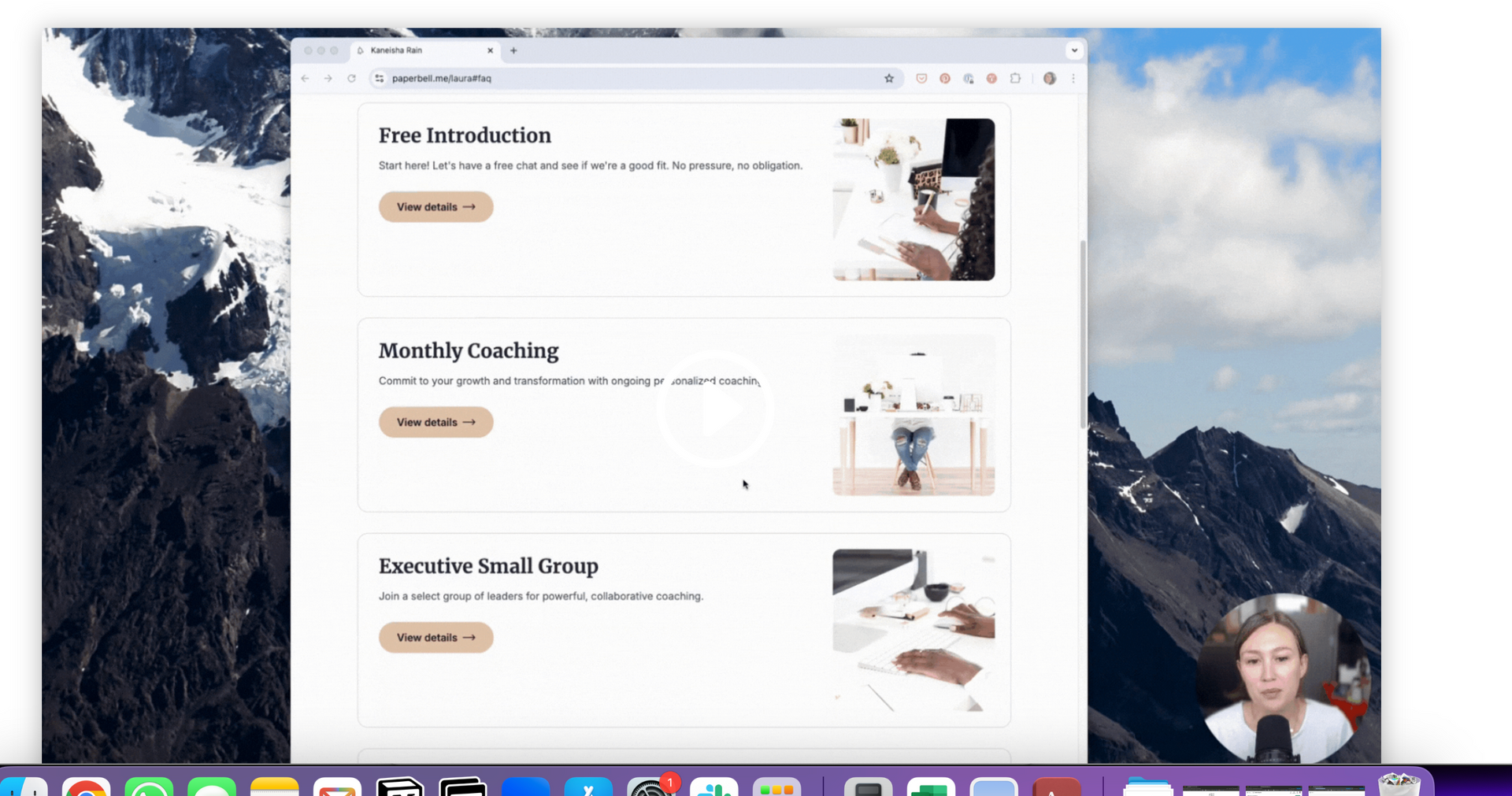
4. Stan Store : build your online coaching store
Stan is perfect for coaches looking to create an online storefront for digital products and services. It’s ideal for building a brand and selling coaching packages seamlessly.
- Features : Customizable storefronts, payment processing, and course hosting.
- Pricing : Starts at $29/month, but make sure to check their latest pricing!
- Why it’s great : A simple and flexible option for coaches who want to expand their online presence.
- Downside: It's not a website but it works great as a link for your social media accounts.

5. Systeme.io : the budget-friendly all-in-one
System.io offers everything you need, from sales funnels and automations to membership sites and email marketing, all at an affordable price.
- Features : Sales funnels, email marketing, automations, and course creation tools.
- Pricing : They have a free plan and the next one starts at $27/month, but make sure to check their latest pricing!
- Why it’s great : An affordable all-in-one solution that’s perfect for coaches looking to keep costs down.
- Downside: Design is very limited and doesn’t look premium.
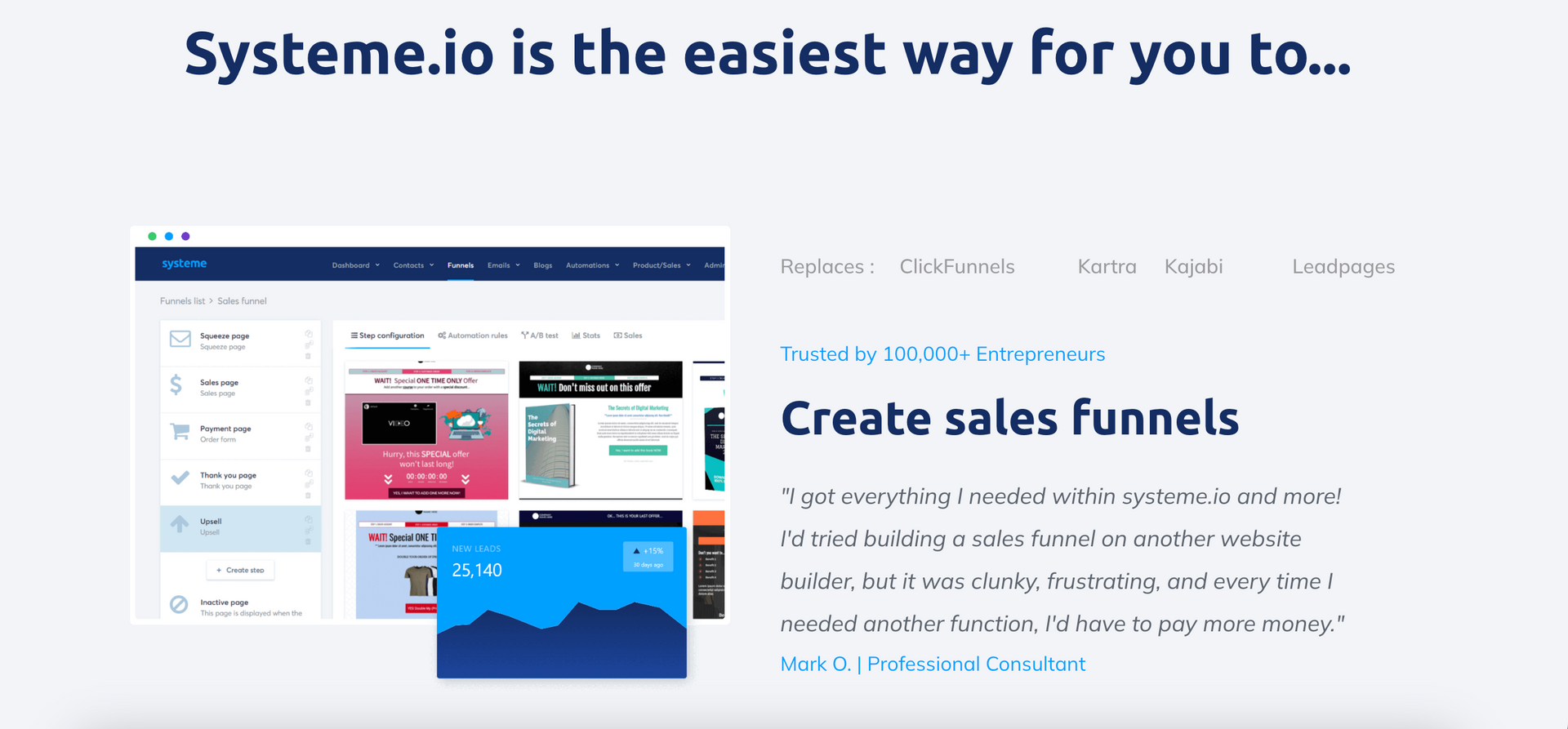
6. Kajabi : the best for content-rich coaching businesses
Kajabi is ideal for coaches who want to offer online courses, webinars, or memberships. It’s a comprehensive platform with powerful marketing tools.
- Features : Course creation, email marketing, and CRM capabilities.
- Pricing : Starts at $69/month, suitable for coaches ready to scale. Make sure to check their latest pricing!
- Why it’s great : A powerful solution for those looking to expand beyond 1:1 sessions.
- Downside: Pricing. I used Kajabi for a year, but I prefer to use Thrivecart and integrate to Mailerlite for email marketing as a combo to save on annual costs. I can achieve exactly the same with that combo without having to pay for the high costs.
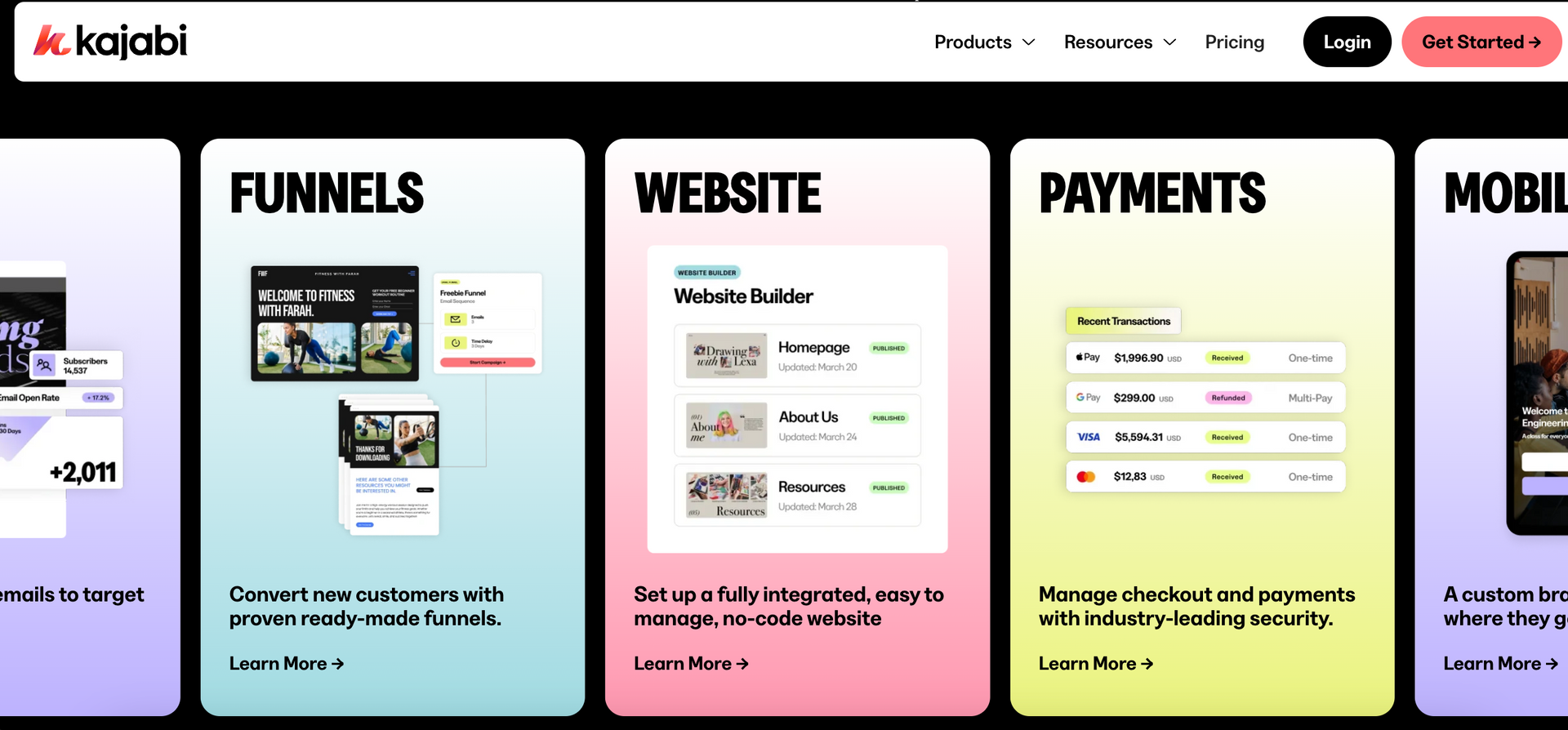
7. Podia : simple and effective for course-based coaching
Podia is great for coaches who want to sell courses and digital products easily. It’s user-friendly and provides the tools needed to manage a coaching business efficiently.
- Features : Course hosting, email marketing, and membership sites.
- Pricing : Starts at $39/month. Make sure to check their latest pricing!
- Why it’s great : An easy-to-use platform for coaches focusing on digital and course-based offerings.
- Downside: I used Podia for a year and decided to move to Thrivecart because the checkout is very awkward. It asks you to create an account username and password before paying, so that extra step is a very big stopper for sales on auto-pilot. People are used to creating username and passwords after paying for something not before and it makes the checkout tedious.
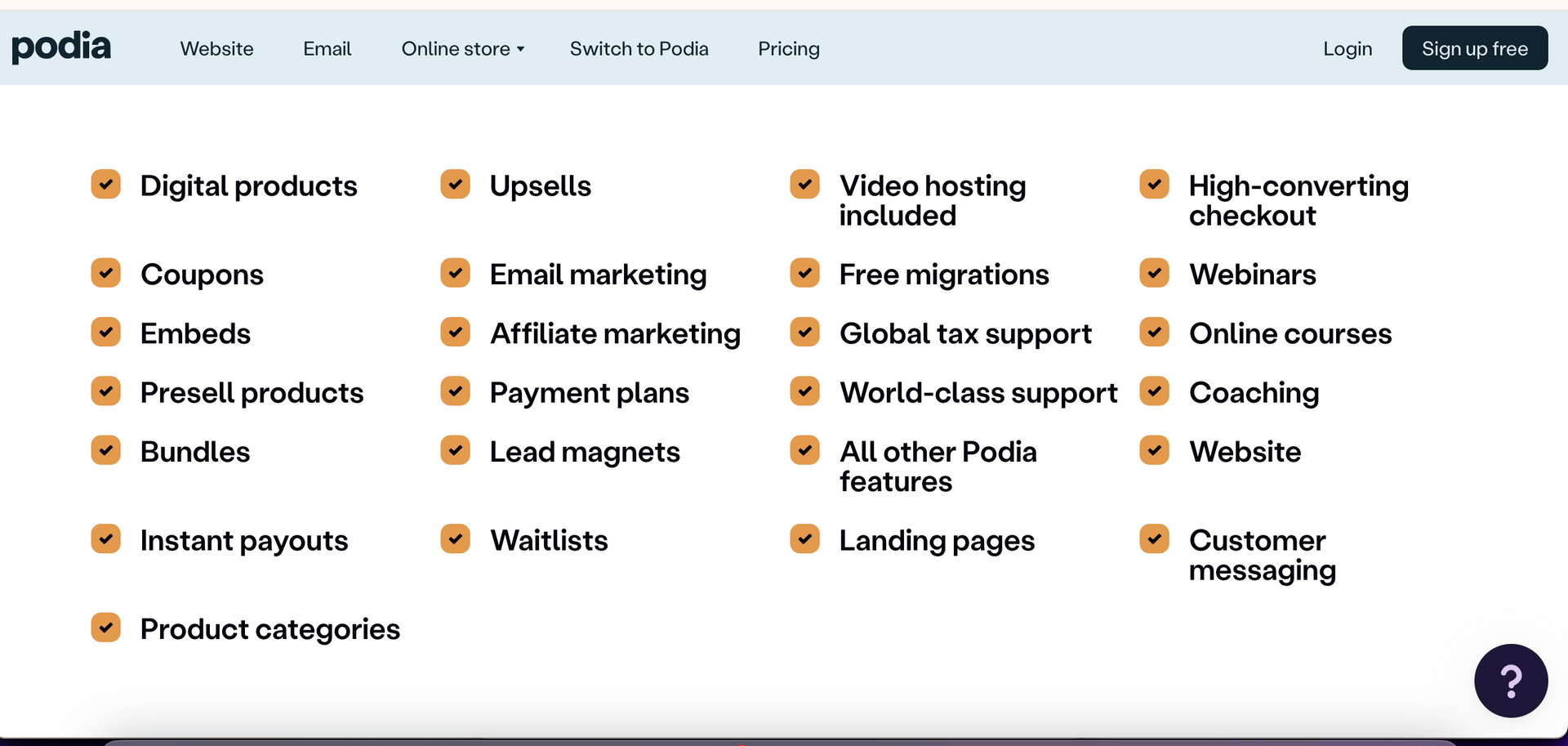
8. Profi : expand your coaching options
Profi is perfect for coaches who want to go beyond 1:1 sessions and offer group coaching, workshops, or courses. It’s designed to support diverse coaching formats and help you scale efficiently.
- Features : Client management, secure video calls, customizable forms, and course creation tools. It also includes client portals and automated billing, providing an all-in-one solution.
- Pricing : Starts at $79/month. Make sure to check their latest pricing!
- Why it’s great : It offers a flexible and scalable system, perfect for coaches who want to expand their offerings and have all their coaching tools integrated in one platform.
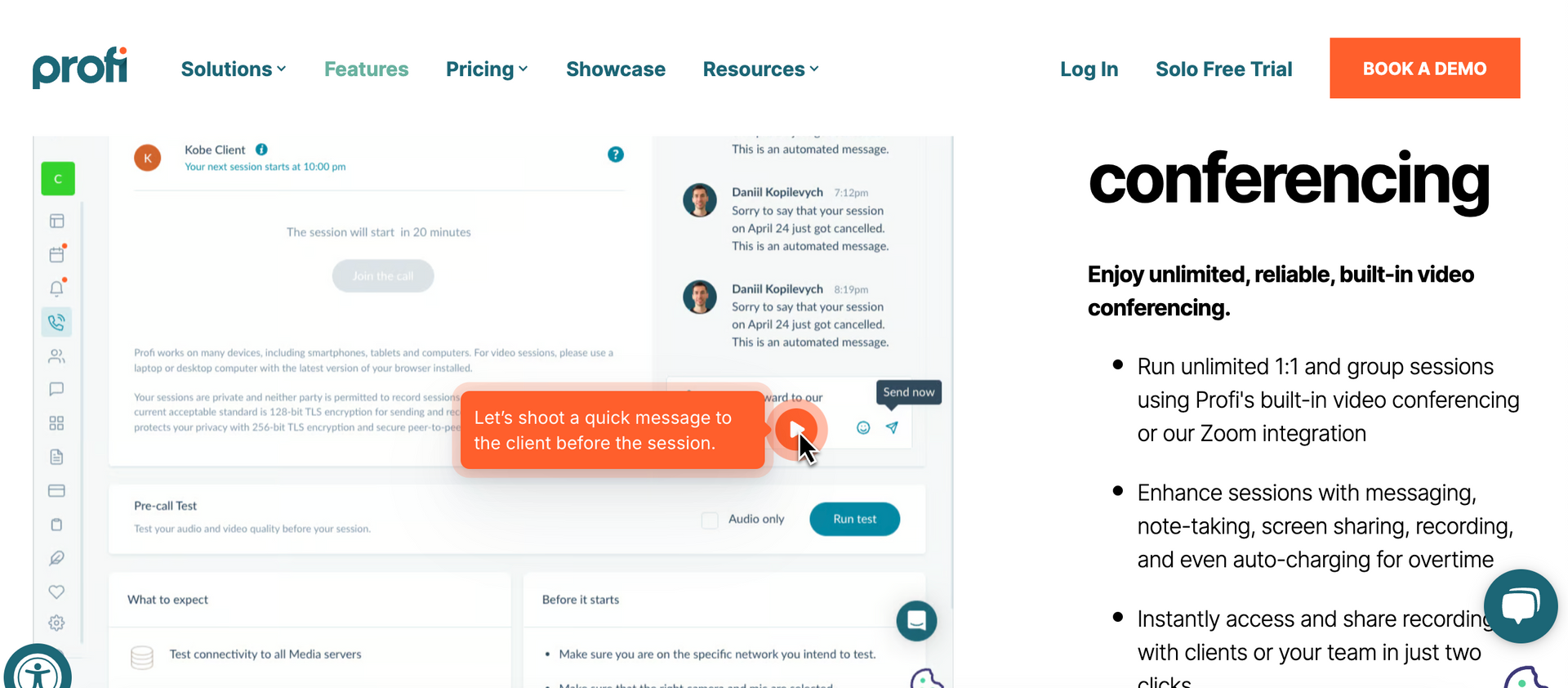
9. CoachVantage : for client management and automation
CoachVantage is designed to make client management simple, with a focus on automations and efficient workflow.
- Features : Scheduling, invoicing, CRM tools, e-signature contracts, and a client portal for sharing resources with clients.
- Pricing : Starts at $29/month. Make sure to check their latest pricing!
- Why it’s great : It simplifies client interactions and the management of coaching workflows, making it an efficient solution for coaches who want to automate administrative tasks and keep everything organized.

10. Practice.do : all-in-one solution for busy coaches
Practice.do offers everything from contracts and forms to scheduling and client management, all within one platform.
- Features : Contracts, forms, scheduling, CRM, and payment integration.
- Pricing : Starts at $60/month. Make sure to check their latest pricing!
- Why it’s great : A robust and professional solution for coaches who want a streamlined approach.
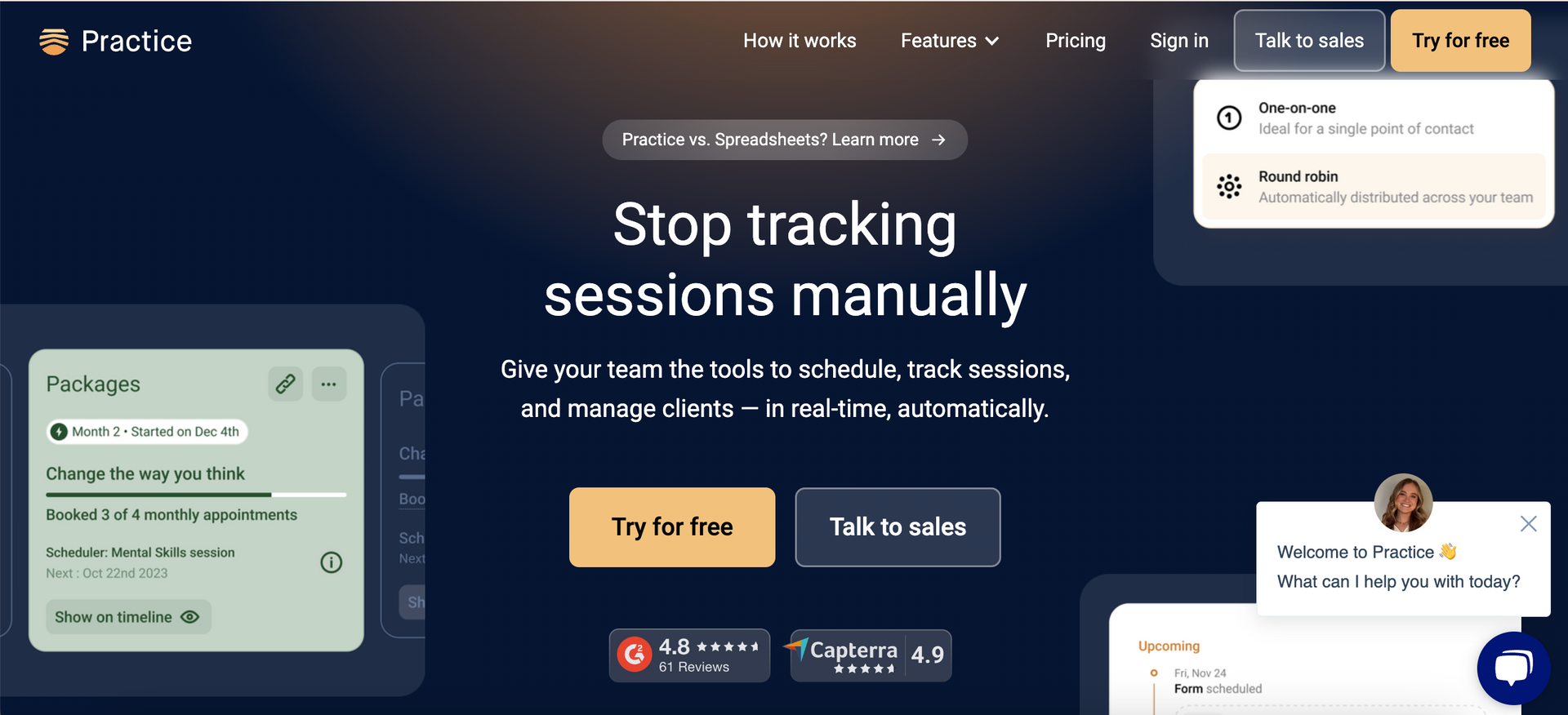
How to choose the right platform for your coaching business
With so many great options, how do you choose the one that’s right for you? Here’s a guide to help you make an informed decision:
1. Identify your coaching style
Think about the type of coaching you offer:
- 1:1 sessions : If your focus is on individual coaching, platforms like Paperbell or Moxie are ideal because they prioritize seamless scheduling and payment processing.
- Group coaching or workshops : If you’re planning to expand into group sessions, courses, or workshops, Profi or Kajabi may be the best fit, as they provide tools for course creation and client engagement.
- Hybrid approach : For those who want to offer a mix of 1:1, group coaching, and digital products, platforms like Kajabi or Podia provide a comprehensive setup.
2. Set a budget that aligns with your growth goals
Evaluate what you’re willing to invest monthly in your coaching business:
- Budget-friendly options : If you’re starting and need something affordable, platforms like Moxie and System.io start at lower price points and provide essential tools for coaches. Or Thrivecart for using it as a checkout software and connecting it to affordable tools like Moxie.
- Premium features for scaling : If you’re ready to invest in a more robust platform, Kajabi and Practice.do offer advanced features and integrations that support scaling your business and managing a larger client base.
3. Assess your tech comfort level
Consider how comfortable you are with technology:
- User-friendly platforms : If you prefer a simple, easy-to-navigate setup, Paperbell or Podia are great choices. These platforms are designed with simplicity in mind, making it easy to get started without a steep learning curve.
4. Determine the level of automation and customization you need
Think about the repetitive tasks you handle and how much you want to automate:
- Automation : Platforms like Practice.do and System.io excel at setting up automated workflows for client follow-ups, payments, and onboarding, giving you more time to focus on coaching.
Create a comparison chart: finding your perfect fit
To make the selection process easier, here’s a simplified comparison of the main features across these platforms:
Leveraging your coaching platform with a high-converting website
Choosing the right platform is just one part of the puzzle. To make the most of your coaching business, you need a high-converting website that integrates seamlessly with your chosen platform. Here’s why it’s important:
- First impressions matter : Your website is often the first place potential clients visit. A professional, well-designed site that integrates with your platform (like Paperbell or Moxie) makes it easy for clients to book, pay, and engage with your content—all in one place.
- Streamlined client experience : By connecting your coaching platform with your website, you create a smooth journey for your clients, from booking their first session to accessing resources and making payments. This reduces friction and increases conversions.
- Brand alignment : A cohesive brand presence across your website and platform helps build trust and credibility, making clients more likely to choose your services.
Discover the platform that empowers your coaching journey.
The right coaching platform can transform your business, giving you more time to focus on what truly matters—helping your clients. Whether you choose Moxie, Paperbell, or another top platform, the best choice is the one that aligns with your coaching style and business goals.
Don’t let tech overwhelm you—embrace the tools that empower you. Ready to build a site that complements your coaching platform and attracts dream clients? Explore my web design services for life coaches and let’s create a digital presence that works for you, 24/7.
Related reads:
- 30 branding ideas for life coaches
- How to get clients for your coaching business
- SEO for life coaches and how to grow your traffic
- Life coaching intake form: what to include and free template

* AI Disclosure: This content may contain sections generated with AI with the purpose of providing you with condensed helpful and relevant content, however all personal opinions are 100% human made as well as the blog post structure, outline and key takeaways.
* Affiliate Disclosure: Some of the links on www.nataliamaganda.com may contain affiliate links meaning that I will get a commission for recommending products at no extra cost to you.

hello! i'm natalia
Latina, web design expert for mental health professionals.
I help ambitious life coaches, therapists and holistic leaders amplify their magic, gain visibility, and simplify their marketing efforts through strategic web design and content.
